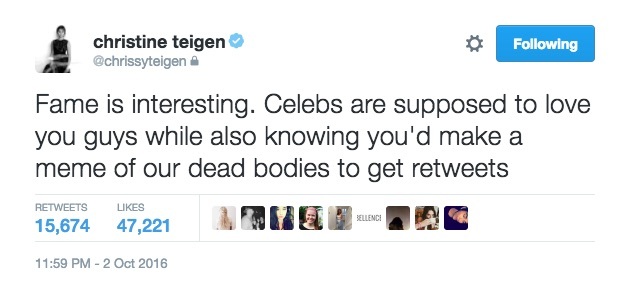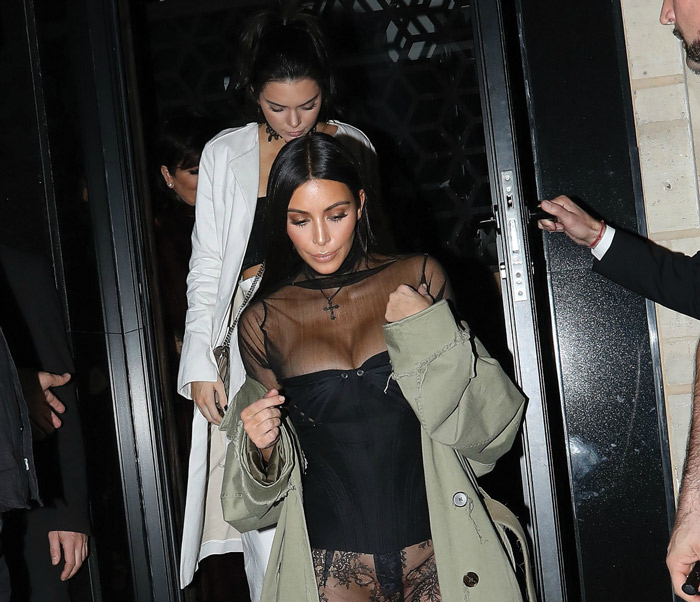A woman was physically restrained and robbed at gunpoint by five men in Paris. Does the horror of this statement change when considering that said woman is Kim Kardashian West, celebrity and reality show star? According to thousands of people online, the woman’s identity renders the situation laughable.
Several million Euros worth of property was stolen from the luxury rental apartment that Kardashian West was staying in with her family during Paris Fashion Week. The robbers threatened the building concierge, who led them to Kardashian West’s residence. They tied her up in the bathroom and escaped on bicycle with their loot.
A quick internet search about the incident will result in endless links claiming to have the latest updates from online tabloids—such as PerezHilton.com, The Hollywood Gossip, and TMZ.com. Moments after news of the robbery broke, people took to Twitter to criticize Kardashian West for everything from her blatant displays of wealth on social media, her intelligence, her sexuality, to the credibility of her claims. Critics were immediately doubtful of the validity of her account, bringing up her reality show dramatics as proof of her lust for attention.
Perhaps the public’s lingering skepticism can be traced back to Ryan Lochte’s false claims of an armed robbery at the Rio Olympics earlier this year. Privilege and fame aside, a woman was left tied up, alone, in the bathroom of a rental apartment after being robbed by five men. Kim Kardashian West is a victim of crime, but the general public is trying to argue otherwise.
These critics overlook the severity of the situation. When someone comes forth as a victim of a robbery or home invasion, they should be given the benefit of the doubt unless further evidence is found to prove otherwise. Dismissing Kardashian West’s experience based on her reputation and fame creates a harmful precedent that could keep other victims from sharing their stories of assault for fear of being persecuted. It should not matter that Kardashian West is famous because of her theatrics, social media personality or her body. This situation made clear that, in the eyes of the public, Kardashian West is not person—she is an object. She is a character on a television show, whose life is of little value when the screen is turned off.
This incident provides frightening insight into the public’s opinion and treatment of famous women, especially those who are “famous for being famous.” A classic example of the media’s strange objectification of female celebrities would be the case of Britney Spears, whose personal struggles with mental illness were ruthlessly documented by the same media sources which praised her recent comeback. Spears’ case demonstrates the habit of idolizing and objectifying female celebrities. When these women experience any human problems they are condemned—until they become glorified once again. As Kardashian West’s close friend and fellow celebrity Chrissy Teigen’s tweeted fans about the situation: “Fame is interesting. Celebs are supposed to love you guys while also knowing you’d make a meme of our dead bodies to get retweets.” Kardashian West was mocked on social media, where people joked that she should not show off her body or her wealth if she does not want it taken, or that the robbery was all a media ploy to invoke pity.

It is critical to remember that an individual’s career should not determine their worth as a human being. During the robbery, there were no camera crews present to capture each dramatic moment. Celebrities may earn their living from public exposure, but they are entitled to privacy. If their private life is invaded, or if their personal well-being is at risk, the matter should be taken seriously.
Kardashian West’s private life is treated like a reality show, as if things are scripted and there are no real consequences for dramatic actions. Kardashian West’s experience in Paris is a harrowing reminder that being famous does not guarantee protection. Instead, the robbery served as another opportunity to make fun of a celebrity for the qualities that make up her public persona. Victims are victims nonetheless, and deserve to be taken seriously regardless of their wealth and celebrity status.








